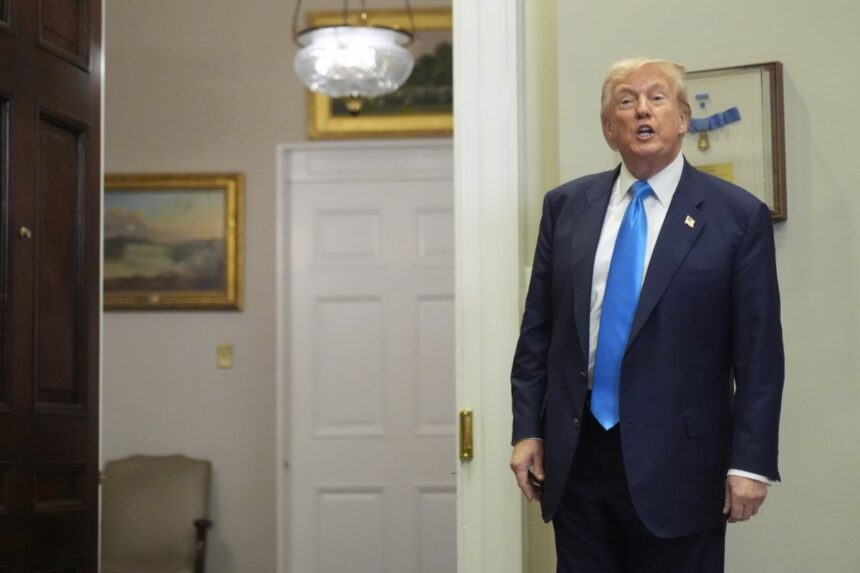Former Bank of Canada governor Mark Carney has voiced sharp criticism following President Donald Trump’s sudden announcement of a 35% tariff on all Canadian goods entering the United States. The move, which sent shockwaves through North American markets yesterday, threatens to undermine decades of integrated trade relations between the historically close allies.
“This is deeply disappointing and potentially damaging to both economies,” Carney stated during an emergency economic forum in Ottawa. “We’re witnessing a fundamental misunderstanding of how integrated supply chains benefit both American and Canadian workers.”
The sweeping tariffs, set to take effect next month, represent one of the most aggressive trade actions against Canada in modern history. Analysis from the Royal Bank of Canada suggests the measures could reduce Canadian GDP by up to 2.4% within the first year of implementation, particularly affecting manufacturing sectors in Ontario and Quebec.
Canadian officials have already begun assembling a response team of trade experts and diplomats to address what Prime Minister Justin Trudeau called “an unjustified economic attack on a trusted partner.” According to CO24 Business sources, emergency meetings between Canadian trade representatives and their American counterparts are scheduled for later this week.
American business leaders have also expressed concern. The U.S. Chamber of Commerce released data indicating that approximately 9 million American jobs depend directly on trade with Canada, with border states like Michigan, New York, and Washington particularly vulnerable to disruptions.
“These tariffs aren’t just Canada’s problem,” said Jennifer Whitbeck, senior economist at Toronto-Dominion Bank. “The integrated nature of North American supply chains means costs will inevitably be passed to American consumers and businesses, particularly in automotive manufacturing, agriculture, and energy sectors.”
The automotive industry faces particular challenges, as vehicles often cross the Canada-U.S. border multiple times during production. Industry analysts project price increases of $2,000-4,500 per vehicle if the tariffs remain in place, according to recent World News reporting.
Canadian provincial leaders have called for unity in the face of these trade pressures. Ontario Premier Doug Ford announced plans to meet with his counterparts to develop a coordinated provincial response that might include targeted procurement policies and support packages for affected industries.
The dispute marks a dramatic shift from the 2020 implementation of the USMCA agreement, which was heralded as a modernized approach to North American trade. Trade experts at the C.D. Howe Institute note that the new tariffs appear to violate several core provisions of that agreement.
“This isn’t just about economics—it’s about trust between allies,” Carney emphasized. “When nations with shared values and deeply integrated economies begin imposing barriers like these, we all lose. The challenge now is finding a diplomatic path forward that recognizes our mutual interests.”
As Canadian negotiators prepare for what promises to be difficult discussions, the question remains: can North America’s most successful trading relationship weather this storm, or are we witnessing the beginning of a fundamental restructuring of continental economic relations?


















